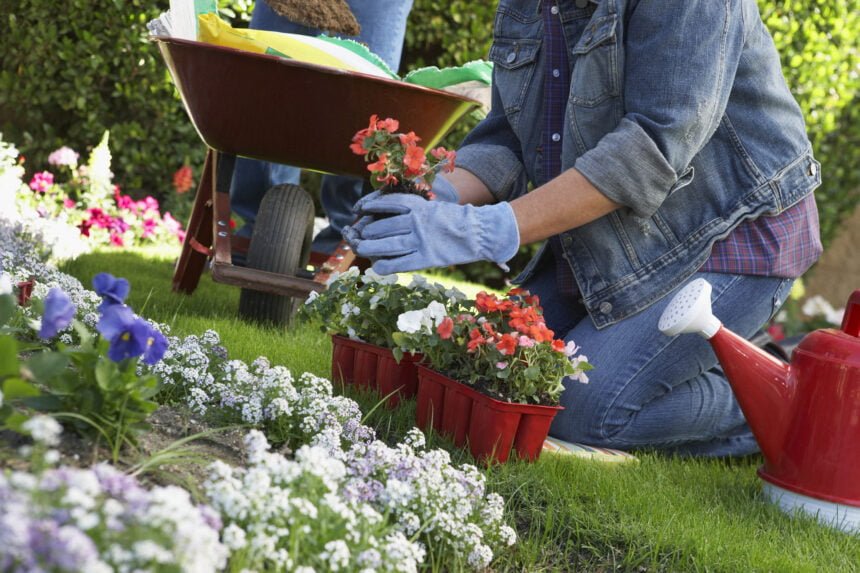It is no secret that the modern diet is the cause of many health issues. A growing number of people are getting sick due to the number of pesticides and artificial ingredients in our food. One study found that people overeat by 25%, because our bodies don’t recognize the chemicals in our food as actually being food.
This is one of the many reasons that it is healthier to grow our own food. We don’t have to worry about harmful pesticides. It also offers a lot of mental health benefits and helps us get exercise. One study states that gardening is good because it is a physical activity and that getting just 10% more people to exercise would cause 6,000 fewer people to die each year.
But it takes a bit or work to get the health benefits of gardening. You also have to do your research and know what you should use to cultivate your garden.
There are two primary approaches to cultivation or gardening – the first uses soil growing methods, while the second employs cutting-edge hydroponic technology. The first method is the age-old process we all know about, which involves working the soil to release minerals that plants need. The second method, adopted by soilless gardening platforms like Claros Farm, cultivates plants using water, rich in nutrients; this process does not include soil and is known as hydroponics.
So, which is the better plant-growing option between hydroponics and soil cultivation if you want healthier and more organic food?
A comprehensive analysis of the benefits and drawbacks of soil and hydroponics is necessary to understand these two plant production methods. There are also many important things to consider while picking the best way to cultivate your plant.
Growing plants in soil
Benefits:
- Any grower, including novices, may put it up quickly and easily. Essentially, all that’s required is a pot filled with dirt and some seeds.
- Choose according to your budget. A pot won’t break the bank.
- Since most nutrients originate in the soil, it guarantees a naturally occurring growing environment with a diverse soil microbiome.
- No need for energy or expensive machinery.
Drawbacks:
- Caring for the plants by hand necessitates decent gardening or plant-growing abilities. Although everything is pre-arranged, putting it all into action is another story. Take cannabis as an example; if the temperature and humidity are not just correct, your plants will rot.
- Soil conditions that encourage biotic stressors make plants susceptible to disease.
- Soil gardening typically provides slow and gentle crop yields due to the lengthy process of nutrient breakdown in the soil before plants can absorb them.
- Location, season, and soil quality have a significant impact.
Growing plants using hydroponics
Benefits:
- Plants can be cultivated at any time and place, regardless of the weather.
- A method of automated growth that requires little maintenance daily.
- Direct and sufficient nutrient supply allows for efficient plant growth and improved production.
- The environment as a whole lowers the danger of soil-borne diseases and pests.
- Minimal water waste due to the closed-tube design allows for a constant volume of water to be filled.
Drawbacks:
- A high-quality hydroponics system can break the bank. In addition, expert manual labor is required for the setup procedure because of its complexity.
- Fixing the system when it breaks down might be challenging for producers.
- Growers must have specific knowledge of planting since they must physically measure and apply nutrients to plant roots.
How to Choose the Right Growing Method
Based on what we have discussed here, both hydroponics gardens and soil cultivation systems have their own benefits and drawbacks. However, there is a wide range of other practical considerations to focus on.
You should ideally consider the following points.
- Growing Experience
What’s your gardening experience? Hydroponic growers must provide all the nutrients and water their plants need, which is more complicated. Newcomers prefer soil cultivation since it’s simpler.
- Growing Plants Indoors or Outdoors
Soil culture is inherently more adaptable to meteorological conditions, making it suitable for indoor and outdoor applications in contrast to hydroponics, which requires electricity and watering systems.
- Personal or Commercial Grower
The hydroponics technology is better for commercial producers since it increases crop yields with less effort. Soil cultivation, on the other hand, is more straightforward and needs less equipment. Therefore, it can be the better choice for a personal grower.
Final words
I hope you find this post informative enough to help you choose between soil cultivation and hydroponics. Considering these factors and weighing out their pros and cons will help you understand which is most suitable for you.

